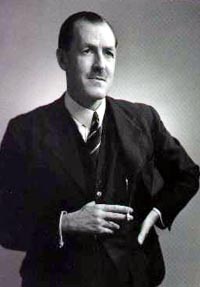
Year Born: 1900
Year Died: 1983
Pioneer
Spry, Graham (1900-1983)
Graham Spry has been called the father of Canadian public broadcasting. Without him and Alan Plaunt, there likely would have been no CBC.
He was born in St. Thomas, Ont. He studied at the University of Manitoba where in 1920 he was editor-in-chief of the student journal, the Manitoban. His Canadian nationalism was inspired by the editor of the Winnipeg Free Press, John Dafoe, who helped Graham win a Rhodes Scholarship. In 1922, Mr. Spry left to study at Oxford University where he started a Canadian group which frequently discussed how they might strengthen the Canadian identity. In the group was Lester Pearson, a future Canadian prime minister.
Graham’s Oxford studies were followed by a year in Geneva at the League of Nations. Based on his disappointment there over Canada’s world role, he wrote an article in 1926 calling for Canada to play an intermediary role between nations. That policy was adopted 20 years later.
Mr. Spry returned to Canada in 1926 and John Dafoe offered him the job of secretary of the Canadian Clubs. The executive asked for suggestions for the celebration of the 60th anniversary of Confederation. One of his suggestions, endorsed by Prime Minister MacKenzie King, was a hookup by telephone and telegraph wires of radio stations coast-to-coast, to broadcast a ceremony in front of the parliament buildings on July 1st, 1927. The Governor-General, Prime Minister Mackenzie King and Ernest Lapointe, who was King’s Quebec lieutenant, were heard by Canadians from the Atlantic to the Pacific. Until then, said Graham Spry much later, radio was a plaything. But Mackenzie King immediately saw its potential to unite the regions.
Mr. King set up the Aird Commission to study broadcasting and one of its recommendations was to treat broadcasting as a public service rather than a business. By then the Depression was under way and there was a new government led by R.B. Bennett who distrusted public ownership. Graham Spry, just 30 years old, and Alan Plaunt, with whom he had studied at Oxford, organized the Canadian Radio League to persuade Mr. Bennett to adopt the Aird Commission recommendations. With perhaps the most effective lobbying campaign ever conducted in Canada, Spry and Plaunt succeeded in convincing Bennett that only a public system like the British Broadcasting Corporation could resist Americanization of the Canadian airwaves and unite the country. He told a Commons hearing in 1932: “It is a choice between the state and the United States.”
The League’s efforts resulted in the establishment of the Canadian Radio Broadcasting Commission in 1932.
Graham Spry had recommended a corporation financed by Canadian radio listeners with licence fees, like the British system. He believed the media had to be independent of government. Against his advice, the CRBC gradually came to depend on taxpayer funding. By 1935 he was critical of the CRBC as a largely undemocratic bureaucracy, though he still supported public broadcasting.
He worked with and for the Co-operative Commonwealth Federation, later to become the New Democratic Party. Unable to find jobs in Canada because of his socialism, Graham Spry worked as an oil executive in London. He was also turned down by the Canadian military in the Second World War because of his socialism. When the war ended, he became Saskatchewan agent general in Europe, working for Tommy Douglas, Canada’s first CCF premier. While there, he became concerned in the late 1950s that U.S. programming would dominate the new television medium and re-activated the Canadian Broadcasting League to fight increasing commercialization and direct U.S. investment in Canadian broadcasting. In 1968 he settled in Ottawa and was chairman of the Canadian Broadcasting League until 1973.
Graham Spry died in 1983.
Written by Jerry Fairbridge – April, 2003
